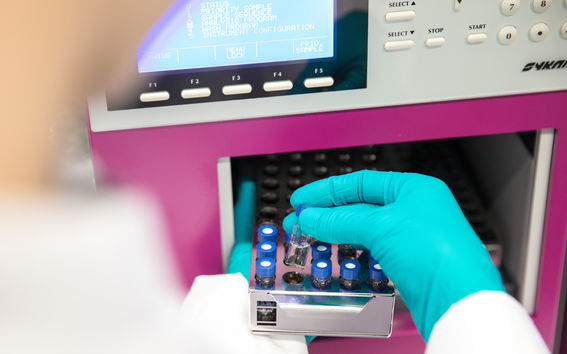Four corona-related projects received special funding from the Academy of Finland

Four ongoing research projects at Aalto University have received funding from the Academy of Finland's COVID-19 special call. The total amount of funding granted to Aalto was 729 775 euros.
The research group led by academy professor Samuel Kaski has been granted a funding of 143 716 euros. The group aims to develop novel machine learning based, privacy-preserving technologies that allow the release and re-use of sensitive research data. His research group at the Finnish Center for Artificial Intelligence FCAI will soon launch an open-source program package that allows researchers to create privacy-preserving synthetic data based on their original dataset and share their data to other researchers. When researchers have the possibility to release data in a synthetic form, more data will be available for Covid19 research, enabling, for example, more reliable conclusions and the development of better treatment methods.
In their earlier research, Kaski’s research group demonstrated that they can reliably reproduce statistical discoveries from the synthetic data. Researchers will also develop a method for the contact tracing apps which allows privacy-preserving collection of statistical information of the contacts. The research work regarding the contact tracing app is conducted in collaboration with the developers of the Finnish application.
Assistant Professor Ewald Kibler’s research project has been granted a funding of 188 024 euros. Kibler and his research group will study older (50+ years) entrepreneurs for whom the COVID-19 crisis is more severe due to higher health risks, immediate impact on pensions and shorter lifespans for reviving the business after the crisis. The research project will give theoretical insights on resilient entrepreneurship in the aging societies of Finland, Germany, Italy and the UK. A key aim is also to be able to provide policy recommendations on how to effectively support later-career entrepreneurs materially and mentally, and on how entrepreneurs could manage threat-induced anxiety and successfully revive from national and global crises.
Professor Jukka Seppälä's research project was granted a funding of 199 315 euros. The subject of the study is polysaccharides that have been functionally modified to have anti-microbial and anti-viral effects. Polysaccharides are used to prevent the spread of microbes and viruses through surfaces and to improve the effectiveness of protective equipment.
The aim of the project is to synthesize and develop materials and surface structures that have an anti-viral effect. This can improve the effectiveness of personal protective equipment such as masks and prevent the spread of viruses through contact to surfaces. Seppälä's research team has previously published experimental studies showing that similarly modified nanocellulose has an anti-viral function.
The group will continue to synthesize and test similarly modified polysaccharides. The goal is to find the best compositions and test the functionality of the concept with different types of microbes and viruses. Results can be expected in early 2021 when the synthetization and characterization have progressed sufficiently.
Assistant Professor Ville Vuorinen has been granted funding of 198 720 euros. The project investigates high-risk situations related to the airborne transmission of the coronavirus in busy public places indoors.
The research project belongs to the field of computational physics, and it combines computational fluid dynamics and Monte-Carlo simulation methods. The objective is to model how extremely small airborne aerosol particles emitted from the respiratory tract when coughing, sneezing or talking are transported in the air. Such particles can carry pathogens.
The project will help to identify high-risk places so that people walking in these locations can be better instructed and thus the risk of corona spreading could be reduced. The project has been running for two months now and its first research article has been submitted for peer review. The group is aiming at presenting more results later on this year.
The Academy of Finland decided on funding on 26 May 2020. In its funding decision, the Academy emphasised that the projects are already underway. This will allow them to quickly produce information and solutions to the corona pandemic.
A total of 8.45 million euros in funding was distributed in the Academy of Finland's COVID-19 special call. Funding was granted to 44 research projects in 12 organisations.
Read more:
Academy of Finland announces funding decisions on special call for COVID-19 research
Read more news

Significant donation to boost pavement engineering research and education
Companies and associations in the field have donated €400,000 to the School of Engineering.
Design strengthens industrial competitiveness – human-centered factory work at the core
Factory work is undergoing a transformation: new technologies and artificial intelligence are changing the content and roles of work. Aalto University’s Department of Design is studying this change from a human-centered perspective in the HiFive project.
Learning to slow down: cold-water swimming benefits explored in new study
Swimming in cold water offers a temporal slowdown, promoting stress management and mental clarity that lingers long after the experience, says research from Finland.






